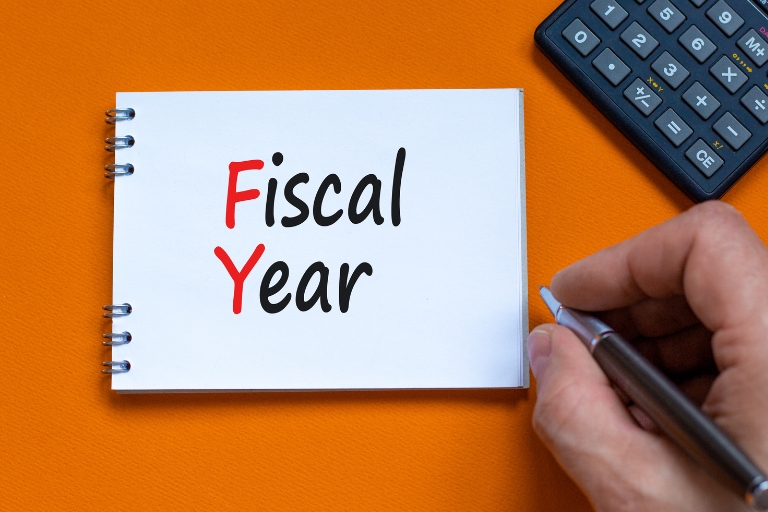Welcome, dear reader, to the wild and wacky world of tax planning! You may think tax planning is as exciting as watching paint dry, but buckle up, because we’re about to turn that notion on its head. We’re diving into the thrilling subject of the fiscal year and how it impacts your tax planning. So, grab your calculators and your sense of humor, because we’re about to embark on a journey of fiscal fun!
Now, before we get started, let’s clear up one thing: the fiscal year is not a year-long festival celebrating the fiscus plant. Sorry to disappoint. It’s actually a 12-month period used for calculating annual financial reports in businesses and other organizations. And it’s about to become your new best friend in the world of tax planning.
Understanding the Fiscal Year
Imagine the fiscal year as a calendar. But instead of being filled with birthdays, anniversaries, and reminders to buy milk, it’s filled with financial deadlines and tax obligations. Sounds fun, right? But don’t worry, we’re here to make it as painless as possible.
The fiscal year is like the cool cousin of the calendar year. While the calendar year starts on January 1 and ends on December 31, the fiscal year can start and end whenever an organization wants. It’s like a rebel without a cause, but with a lot of financial responsibilities.
Why the Fiscal Year Matters
So, why should you care about the fiscal year? Well, if you’re a business owner, it’s crucial for your financial planning. It determines when you report your income and expenses to the tax authorities. Think of it as your financial report card, but instead of grades, you get tax deductions and credits. Not as exciting as a gold star, but definitely more valuable.
But it’s not just for businesses. Even if you’re an individual taxpayer, understanding the fiscal year can help you plan your taxes better. It can help you decide when to make certain financial moves to maximize your tax benefits. So, in a way, the fiscal year is like your personal financial advisor, but without the expensive fees.
Different Types of Fiscal Years
Just like there are different types of people, there are different types of fiscal years. Some organizations use the calendar year as their fiscal year. Others might start their fiscal year on July 1 and end it on June 30. And some might choose a completely random date, like the third Tuesday of the second month of the year. Because why not, right?
The point is, the fiscal year is flexible. And that flexibility can be a powerful tool in your tax planning arsenal. So, embrace the fiscal year in all its forms. It’s not just a date on a calendar, it’s a way to take control of your financial future.
How the Fiscal Year Affects Tax Planning
Now that we’ve covered the basics of the fiscal year, let’s get to the juicy part: how it affects your tax planning. If you thought tax planning was all about filling out forms and crunching numbers, prepare to be amazed. Because it’s also about strategy, timing, and a whole lot of fiscal year fun.

The fiscal year affects when you report your income and expenses. And that can have a big impact on your tax bill. For example, if you make a big purchase at the end of your fiscal year, you might be able to deduct the expense on your current year’s tax return. But if you make the purchase at the beginning of your fiscal year, you might have to wait until next year to claim the deduction. It’s like a game of financial chess, and the fiscal year is your queen.
Strategic Tax Planning
Strategic tax planning is all about making smart financial decisions at the right time. And the fiscal year plays a big role in that. By understanding your fiscal year, you can plan your income and expenses in a way that minimizes your tax liability. It’s like playing a game of Tetris, but with financial transactions instead of colorful blocks.
For example, if you know that you’re going to be in a higher tax bracket next year, you might want to push some of your income into this year to avoid paying more taxes. Or if you’re expecting a big expense next year, you might want to delay it until the next fiscal year to maximize your tax deductions. It’s all about timing, strategy, and a deep love for the fiscal year.
Year-End Tax Planning
Year-end tax planning is like the grand finale of your fiscal year. It’s your last chance to make financial moves that can affect your tax bill. And it’s a great opportunity to look back at your fiscal year and give yourself a pat on the back for all the smart financial decisions you made. Or, you know, to drown your sorrows in a tub of ice cream because of all the financial mistakes you made. Either way, it’s a time for reflection and action.
During your year-end tax planning, you might want to accelerate your income or delay your expenses to take advantage of tax benefits. Or you might want to make charitable donations or contribute to your retirement account to reduce your taxable income. The point is, year-end tax planning is a powerful tool in your tax planning toolkit. And it’s all thanks to the magic of the fiscal year.
Conclusion
And there you have it, folks! The fiscal year: a thrilling journey through the world of tax planning. Who knew that a simple 12-month period could have such a big impact on your finances? But remember, with great fiscal power comes great fiscal responsibility. So, use your fiscal year wisely, plan your taxes strategically, and always remember to have fun with it. Because tax planning doesn’t have to be boring. It can be a wild, exciting, and hilarious adventure. So, go forth and conquer the fiscal year. Your financial future awaits!
And remember, the fiscal year is not just a date on a calendar. It’s a powerful tool in your tax planning arsenal. So, embrace it, understand it, and use it to your advantage. Because the fiscal year is not just about taxes. It’s about taking control of your financial future. And that, dear reader, is something worth celebrating.


